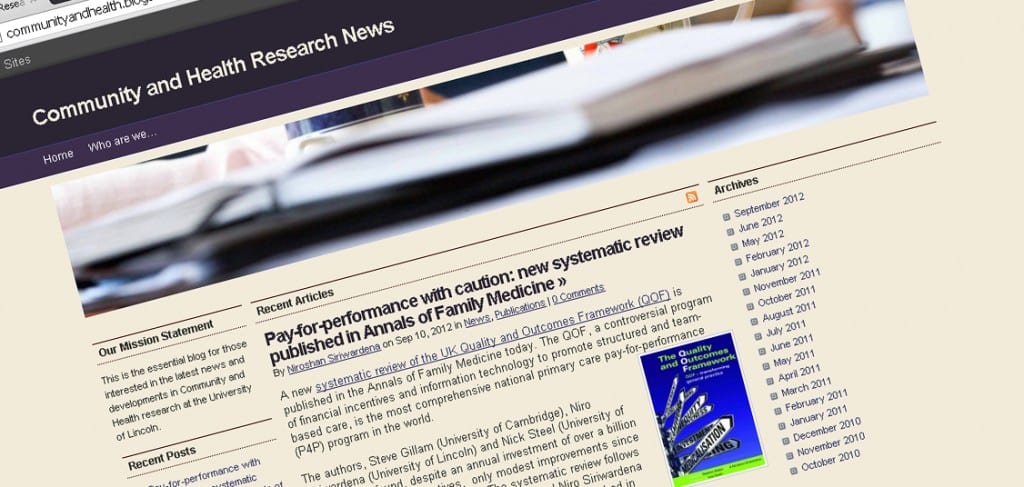Keeping an up to date blog is important as it’s the primary way of getting a message out to the public in an effective and accessible way. Blogs can be shared across the internet and posts on blogs can be used to engage with your audience.
As research groups, we want to show the research activity that goes on in groups and to encourage engagement with our research. This can be done in the form of a blog which is presented as ‘News’ on the group’s website giving a professional context to why the blog exists.
The posts in your blog will be listed at the side of each page on the website to be accessed easily and can be fed to other web pages across the internet, if suitable (on corporate, university web pages, on a personal website etc.).
Blog posts need to be interesting and full of useful information but also easy to read. Below are some tips to help make the most of your research group’s blog:

